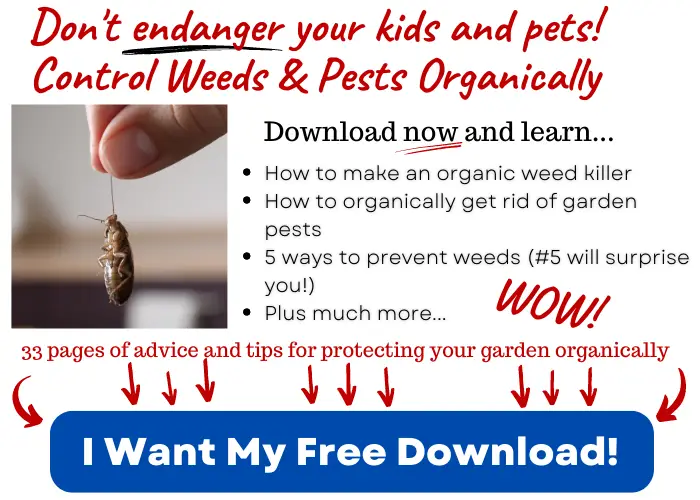Garden pests can wreak havoc on your favorite plants. However, many of the most popular pest control options contain harmful ingredients. Thankfully, plenty of organic pest control options exist as well, as this post will soon prove.
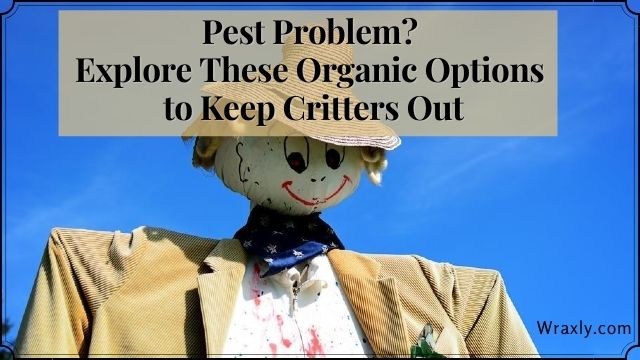
- 9 Organic Ways to Eliminate Garden Pest Problems
- 1) Apply Neem Oil to Your Plants
- 2) Spray Pests with Organic Insecticidal Soap
- 3) Spread Diatomaceous Earth Around Your Plants
- 4) Add Nematodes to Your Garden Soil
- 5) Invite Beneficial Insects to Your Garden
- 6) Grow Plants that Repel Pests Naturally
- 7) Use a Mixture of Garlic and Water
- 8) Shield Your Plants with Row Covers
- 9) Remove Garden Pests by Hand
- Why is Organic Pest Control Preferable?
- Final Thoughts on Organic Pest Control
9 Organic Ways to Eliminate Garden Pest Problems
If you seek organic ways to mitigate the damage pests cause in your garden, you’ll be pleased to find the main options available to you. Here are the nine best organic methods you can use to control garden pests:
- Apply neem oil to your plants
- Spray pests with organic insecticidal soap
- Spread diatomaceous earth around your plants
- Add nematodes to your garden soil
- Invite beneficial insects to your garden
- Grow plants that repel pests naturally
- Use a mixture of garlic and water
- Shield your plants with row covers
- Remove garden pests by hand
The methods above will apply to different situations and have varying effectiveness. The sections below will introduce you to the details of each one.
Click here to download your FREE guide to organic weed and pest control
1) Apply Neem Oil to Your Plants
Neem oil is a naturally occurring oil that comes from the neem tree and is quite an effective insect repellent. This substance works in several ways to disrupt insects and reduce their presence in your garden.
One way neem oil works is by interfering with an insect’s hormonal cycle. Once the neem oil affects a pest’s hormones, it will be much more difficult for that pest to reproduce and lay healthy eggs. As the pests in your garden produce fewer viable eggs, their populations will decline in your garden. Neem oil simultaneously discourages pests from feeding on your plants as well.
Neem oil can deter hundreds of garden pests, including aphids, mealybugs, and whiteflies. The best way to apply neem oil is to spray it onto your plants when they are not in direct sunlight. Dawn and dusk are often ideal for applying neem oil, as strong sunlight can cause leaves to burn following a neem oil application.
Recommended Neem oil products
| Image | Title | Prime | Buy |
|---|---|---|---|
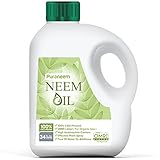 | Pure Neem Oil, 100% Cold Pressed Neem Oil for Plants OMRI listed (34 Oz) | PrimeEligible | Check Price on Amazon |
Top | Organic Neem Bliss 100% Pure Cold Pressed Neem Seed Oil - (16 oz) High Azadirachtin Content - OMRI Listed for Organic Use | PrimeEligible | Check Price on Amazon |
 | Growel Organic Neem Oil, High Azadirachtin Content Cold Pressed Neem Oil - 16 fl oz | PrimeEligible | Check Price on Amazon |
 | Neem Oil for Plants - 16 Oz - 100% Pure Cold Pressed Concentrate | PrimeEligible | Check Price on Amazon |
 | Emily's Naturals Neem Oil Plant Spray Kit, Makes 48oz | Natural Spray for Garden and House Plants | Safe and Biodegradable | PrimeEligible | Check Price on Amazon |
 | Southern Ag 08722 Triple Action Neem Oil Fungicide Insecticide Miticide, Brown | PrimeEligible | Check Price on Amazon |
2) Spray Pests with Organic Insecticidal Soap
Insecticidal soap is another one of the most effective organic pest control solutions. Spraying insecticidal soaps on your plants will kill many soft-bodied pests living on your plants. The active ingredients in insecticidal soaps break down the outer layers of a pest’s body while causing extreme dehydration. Those two factors will eventually become fatal to the pests on your plants.
Insecticidal soap must contact your garden pests while it is still wet for it to be effective. Once the soap becomes dry, it will lose most of its effectiveness. The best way to use insecticidal soap is to locate pests on your plant, then spray the soap solution on them directly.
You may find several options for insecticidal soaps available for purchase. If you are interested in organic pest control, you’ll need to select an insecticidal soap that advertises itself as such. Each insecticidal soap label should clarify whether it is organic or not.
Recommended Insecticidal Soaps
| Image | Title | Prime | Buy |
|---|---|---|---|
 | Natria 706230A Insecticidal Soap Organic Miticide, 24 oz, Ready-to-Use | PrimeEligible | Check Price on Amazon |
Top | Safer Brand Insecticidal Soap & Pyrethrin Concentrate, 32-Ounce | PrimeEligible | Check Price on Amazon |
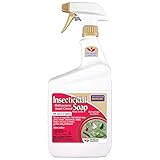 | Bonide Insecticidal Soap Ready-to-Use, 32 fl. oz., Multi Purpose Insect Control, Indoor and Outdoor | Prime | Check Price on Amazon |
 | Espoma EOIS24 Organic Insect Soap, White | PrimeEligible | Check Price on Amazon |
 | Trifecta Crop Control Ready to Use Maximum Strength Natural Pesticide, Fungicide, Miticide, Insecticide, Help Defeat Spider Mites, Powdery Mildew, Botrytis and Mold on Plants 32 OZ Size | PrimeEligible | Check Price on Amazon |
3) Spread Diatomaceous Earth Around Your Plants
Spreading diatomaceous earth in your garden beds is an effective pest control method that requires minimal effort. Diatomaceous earth is a powdery substance that consists of fossilized remains of tiny marine animals. Those fossilized remains have a fantastic ability to draw liquids from an insect’s body, causing dehydration and eventual death.
You can sprinkle diatomaceous earth on and around your most vulnerable garden plants. That simple application will be enough to kill many of the most common garden pests. However, diatomaceous earth can kill beneficial organisms, such as honeybees. Diatomaceous earth can also be harmful to human health if you inhale it.
The best approach for applying diatomaceous earth is to wear a facemask while you sprinkle it on your garden soil. You should also ensure that there are few beneficial insects in the area that may die from contact with diatomaceous earth. Those two precautions will help keep you safe while removing insects that harm your plants.
FURTHER READING
- How to Get Rid of Possums in Your Yard
- 9 Tips for Controlling Cucumber Beetles
- How to Get Rid of Fruit Flies in House Plants
- How to Get Rid of Gnats in a Vegetable Garden
- How to Choose the Best Weed Sprayer for Your Needs
- Do Spider Mites Live in Soil?
Recommended Diatomaceous Earth Products
| Image | Title | Prime | Buy |
|---|---|---|---|
 | Safer 51703 Diatomaceous Earth-Bed Bug Flea, Ant, Crawling Insect Killer 4 lb | PrimeEligible | Check Price on Amazon |
Top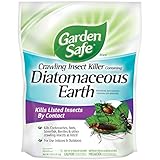 | Garden Safe 93186 Insect Killer, 1-count | PrimeEligible | Check Price on Amazon |
 | Harris Diatomaceous Earth Crawling Insect Killer, 8oz | PrimeEligible | Check Price on Amazon |
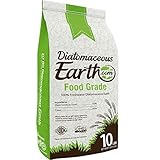 | DiatomaceousEarth 10 LBS FOOD GRADE Diatomaceous Earth - 100% Organic All Natural Diamateous Powder - Diametaceous for humans is Safe Around Children. | PrimeEligible | Check Price on Amazon |
4) Add Nematodes to Your Garden Soil
Adding nematodes to your garden soil helps reduce any pests that live in your soil as well. Nematodes are microscopic worm-like creatures that may exist in your soil already. The problem is that your soil likely does not have enough nematodes to prevent infestations.
Increasing the nematode population in your soil will not improve any issues related to pests that live above ground. However, they are exceptionally well-equipped to handle soil-dwelling pests like grubs, thrips, and corn rootworms.
Be careful about which type of nematode you allow into your garden. While beneficial nematodes help pest prevention, other nematode varieties may damage your plants. The nematode variety you should use is an entomopathogenic nematode, often known simply as a beneficial nematode.
Recommended Nematodes
| Image | Title | Prime | Buy |
|---|---|---|---|
 | Nema Globe 4003224 Fungus Gnat Nematodes, 20 Million, White | PrimeEligible | Check Price on Amazon |
Top | NaturesGoodGuys - Triple Blend Beneficial Nematodes HB+SC+SF (50 Million) | Prime | Check Price on Amazon |
 | BioLogic Scanmask Steinernema Feltiae (Sf) Beneficial Nematodes for Natural Insect Pest Control, 5 Million Size | Prime | Check Price on Amazon |
 | Environmental Factor 50 x 1 Million Benifical Nematodes (S.feltiae) Pot Popper Pro Gnat & Thrip Control | PrimeEligible | Check Price on Amazon |
 | Nematode Solution Concentrate Ready To Spray | PrimeEligible | Check Price on Amazon |
 | Growers Trust Nematode Control Non-toxic, Biodegradable - Natural Nematode -Treatment (Solution Makes 1 gallon RTU) | Prime | Check Price on Amazon |
5) Invite Beneficial Insects to Your Garden
Inviting bugs into your garden seems like the last idea you should pursue when eliminating pests. However, many insects are beneficial to your garden and will help deter other detrimental bug species. Some of the most beneficial insects for pest control are:
- Ladybugs
- Ground beetles
- Braconid wasps
- Green lacewings
- Damsel bugs
Each insect in the list above preys on the common pests you find in your garden. Bringing these beneficial predatory bugs into your garden is a natural way to prevent and mitigate infestations.
6) Grow Plants that Repel Pests Naturally
Some plant species are highly effective at discouraging pests from arriving in your garden. Some of the best plants to use for this purpose are:
- Marigolds
- Rosemary
- Chrysanthemums
- Alliums
- Garlic chive
Growing one of those plants is a valuable preventative measure against pest infestation. Many of those pest deterring plants also add lovely flowers and foliage to your planting schemes.
7) Use a Mixture of Garlic and Water
Many garden pests detest garlic and will avoid it at all costs. You can take advantage of that tendency by creating a garlic spray for your plants. To use this method, you’ll need to crush several garlic cloves with a blender or food processor. Then add a few drops of dish soap and dilute the mixture with water.
After you complete those steps, you can fill a spray bottle with your garlic and water mixture. Next time you suspect an infestation problem, spray your plants with your garlic solution as you would with insecticidal soap or neem oil.
8) Shield Your Plants with Row Covers
One of the most reliable ways to protect your plants from pests is to set up a physical barrier. While this approach may seem heavy-handed, it is one of the few options that nearly guarantee your plants will be pest-free. Row covers are often the first option gardeners use if they are desperate to keep their favorite garden plants safe from infestations.
Floating row covers are perhaps the most popular types of row cover you can use. These row covers are easy to install and block any insect that hopes to access your plants while allowing sunlight to get in. The best way to use a row cover is to install it just after planting your plants. Adding a row cover immediately after planting gives insects minimal opportunity to work their way into your garden bed.
9) Remove Garden Pests by Hand
Our last pest removal tip is the most straightforward. To fix your garden pest problem quickly, you can remove insects by hand.
Put on a pair of garden gloves and search your plants for any pests you can see with your naked eye. After locating those insects, you should remove them from the plant or kill them immediately. Hand removal is not the best option for a large-scale infestation. But if you’ve noticed just a few pests on your plants, removing them by hand can be a useful option.
You may also be interested in… Chiggers vs Clover Mites
Why is Organic Pest Control Preferable?
You now know some of the best organic pest control options for your garden. Before we conclude, let’s consider some of the reasons that these organic options are worth using.
Organic Pest Control Are Safer to Use
Non-organic pest control options often contain harsh chemicals, which can be hazardous to your health. It may be tempting to use these methods to rid your garden of pests immediately. However, the safer long-term option is to use organic approaches, as they do not pose a risk to your wellbeing.
Organic Pest Control is Environmentally Friendly
The chemicals present in non-organic pest controls are not only harmful to you, but they can also hurt the environment too. By contrast, organic pest control often relies on natural processes, allowing them to eliminate pests without threatening environmental health.
Organic Pest Controls Don’t Lose Effectiveness
Organic pest control methods do not lose their effectiveness over time, while many non-organic options do. While your non-organic pest controls sit in storage, their chemicals can begin to break down, dramatically lessening their potency. By contrast, the organic pest control methods we’ve shared will remain useful for much longer.
Final Thoughts on Organic Pest Control
While garden pests are a nuisance, there are numerous organic methods you can use to eliminate them. Next time you experience a garden infestation, refer to one of the nine organic pests control options in the list above, and soon your garden will be pest-free.

John Haryasz is a freelance writer and landscape designer. In the field of landscape architecture, he has contributed to many successful design projects throughout the country. As a writer, John specializes in creating captivating and informative web content. Through that work, he aims to share his design knowledge and promote engagement with the outdoor world.
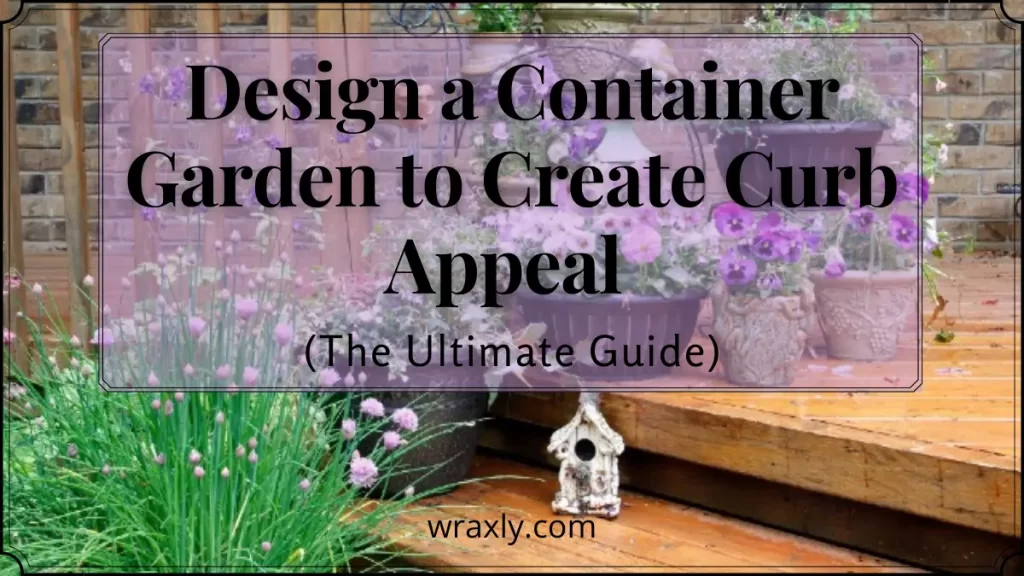
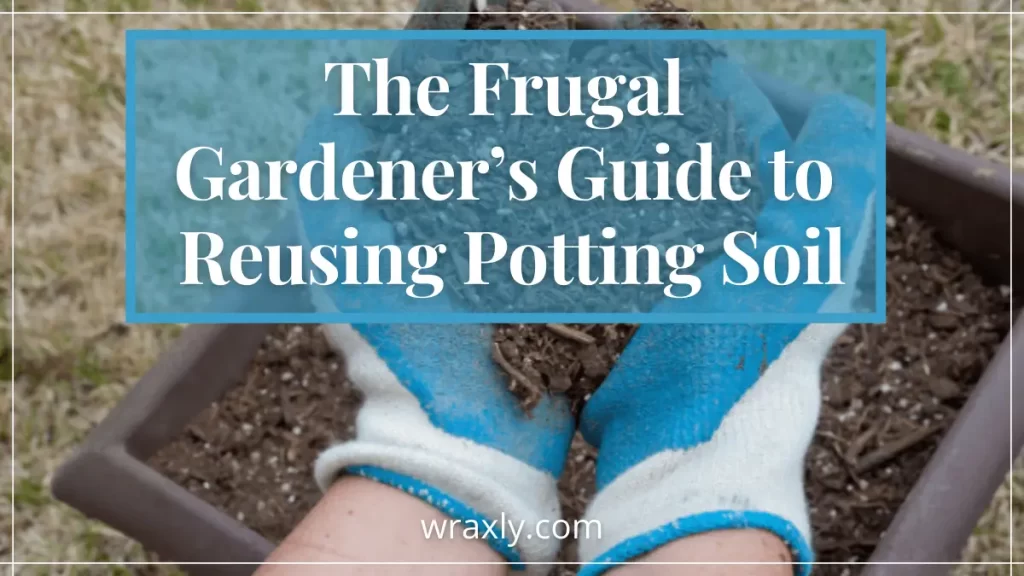
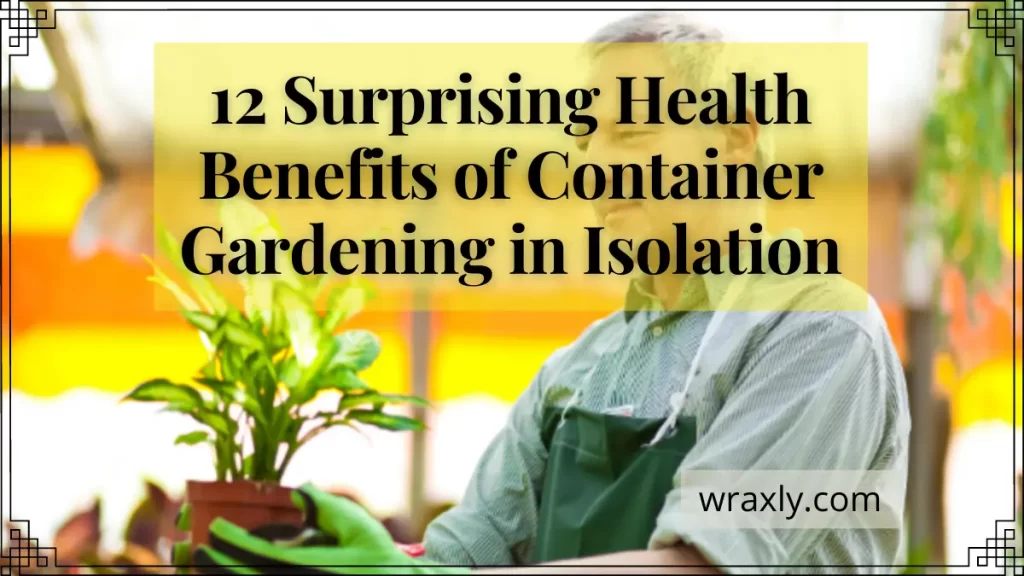
![10 Common Container Garden Mistakes to Avoid [Beginner’s Guide]](https://wraxly.com/wp-content/uploads/2021/02/10-Common-Container-Garden-Mistakes-to-Avoid-Beginners-Guide-1200-1024x576.webp)
